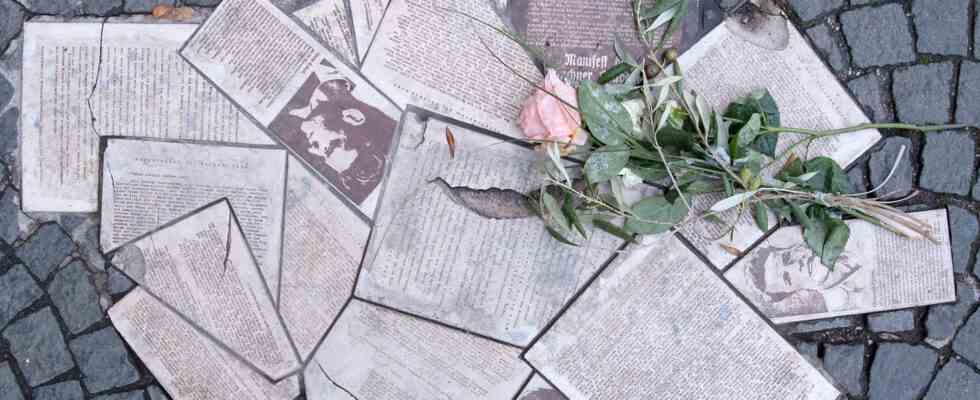Status: 06.02.2023 5:22 p.m
The “White Rose” stands for resistance against the Nazi dictatorship – its leaders were executed 80 years ago. In his commemorative speech, Federal President Steinmeier called for action for democracy. Everyone has to protect them.
Federal President Frank-Walter Steinmeier has called for German democracy to defend itself against new external threats and increasing attacks from within. In view of the war in Ukraine, this includes “a well-equipped Bundeswehr that is ready to defend itself,” he said in a lecture at the Ludwig Maximilian University in Munich, according to the previously published speech.
What is also needed are “committed citizens who are morally clear and firm in their political judgement, who work for our country, for democracy”. In his “White Rose” memorial lecture, Steinmeier acknowledged this group’s resistance to the National Socialist regime.
Resistance is not only allowed, but required
The predominantly student group around Hans and Sophie Scholl had published leaflets calling for resistance against the Nazi dictatorship and for the end of the Second World War. At the beginning of 1943 they were surprised and arrested while distributing leaflets at the university. On February 22, the Nazis had the two siblings and their friend Christoph Probst executed.
80 years ago, the “White Rose” resisted a regime of terror that used every imaginable brutality against its opponents and made fear and terror the principle of rule, said Steinmeier. “This criminal regime, which did not care about human dignity and human life – more: that denied human beings – this regime had no right to obedience. It had to be fought.”
The resistance group Weisse Rose distributed leaflets in which they called, among other things, for resistance against the Nazi regime.
Image: George (Jürgen) Wittenstein / akg-image
Special importance of resistance
This attitude united the men and women of the German resistance, no matter how different their motives may have been, said Steinmeier. They all struggled with the legitimacy of their actions.
In the end, however, they all came to the same conclusion: those who did not act, who remained silent, tolerated violence as a principle, injustice as normal, and the genocide committed by Germany. Those who did not act and remained silent were guilty of complicity.
Therefore, resistance is not only allowed, but required. “The dictatorship had to be overthrown.” Against this historical background, it is annoying when the term “resistance” is casually used today in political debates. “Nothing justifies equating protest in a democracy with resistance in a dictatorship,” Steinmeier warned.
Criticism and protest as the core of democracy
Today, the Basic Law guarantees the dignity of every individual as well as freedom of opinion, assembly and the press. These freedoms are constitutional reality. The Constitutional Court ensures that freedom is maintained. “In our democracy, objection is not only expressly possible. It is necessary,” said Steinmeier.
Criticism, demonstrations, even protests were part of the essence of democracy. “Even and especially by minorities; also with means that the majority criticizes, that disturb them, that get on their nerves.” In our democracy, however, there is only a right to resistance if it is to be abolished.
With the “White Rose” memorial lecture, Steinmeier continued the tradition of some of his predecessors. The speech was given by Joachim Gauck in 2013, by Johannes Rau in 2003 and by Richard von Weizsäcker in 1993.

